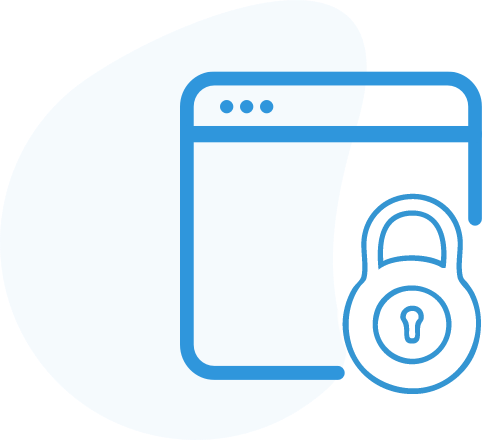WordPress Malware Removal Jacksonville, FL
Experts in WordPress Malware Removal, over 10 years experience.We can clean your site of malware in a jiffy and get you back to business!
We have services for Jacksonville based website owners offering WordPress Malware Removal to individuals, small businesses, medium size businesses, and large corporations. Our team of experienced WordPress developers can identify your malware problem, clean it up usually within 24-48 hours. Moving forward we recommend our very affordable monthly maintenance plan to keep your WordPress installation, plugins and themes all up to date on a monthly basis. We believe that the most important part of creating a secure online presence in Jacksonville Florida is making sure your website has the highest levels of security, with maintaining your WordPress core and plugin updates.
We provide comprehensive WordPress maintenance solutions, to help ensure your WordPress website always up to date. Our Jacksonville team members have expertise in web hosting, malware protection, vulnerability scanning and malware removal.

Industry standard WordPress hardening and our special security features as a bonus.
Setup an automated backup system for a fail safe version of your WordPress installation.
Monthly WordPress core and Plugin updates, with human inspection afterwards.
Up time monitoring that notifies our team to detect any server issues.
WordPress Malware Removal Services in Jacksonville Florida
Our Jacksonville, Florida malware services cover all kinds of malware or WordPress hacked websites. Everything from black hat SEO, javascript redirects, htaccess redirects and backdoor server access. Depending on the type of hack and how elaborate (in most cases it is not actually that elaborate but takes time to clean) it is will depend on the price and time it takes to clean up. Having a backed up system in place will help speed up the process.
With our Jacksonville, Florida team, the time it takes will depend on the extent of the hack or malware. In most cases the hack is just some javascript in a few files and can be fixed within 24 hours. In more elaborate cases it can take up to 48 to 78 hours to fully clean and restore a WordPress installation that has been hacked.
Once we clean up a WordPress hacked website we will monitor for the next 48 hours to ensure everything was cleaned 100% and nothing is regenerating itself.
The internet is a vulnerable and insecure place, there is never a guarantee that your website won't be compromised at some point in time. Even big companies that have very intelligent cyber security professionals get compromised from time to time. Our maintenance service is for mitigating risk by keeping your site up to date with “known” patches. As well as implementing best security practices to minimize your risk. With our monthly maintenance plan if in the rare case your site does get infected with malware we will remove it for free! (with the stipulation that you are following our recommended strong password policy)
Here at WPSecure we do not rely on any plugins for malware detection or removal. From our experience most malware scanners aren't very accurate giving false positives or just being completely bypassed by sophisticated malware. Our malware removal process is a combination of manual inspection for malware as well as our own automated code for detecting anything suspicious. We also rely on server aided malware scanners that are typically installed by default on most servers. There are better methods for malware detection that do not include free or paid WordPress malware scanning plugins. If fact most of these plugins fail short.
Jacksonville is a city located on the Atlantic coast of northeastern Florida, the most populous city proper in the state and the largest city by area in the contiguous United States as of 2020. It is the seat of Duval County, with which the city government consolidated in 1968. Consolidation greatly increased its population relative to its extended size which placed most of its metropolitan population within the city limits. As of July 2022, Jacksonville's population was 971,319, making it the most populous city in the Southeastern United States and the largest in the South outside the state of Texas. With a population of 1,733,937, the Jacksonville metropolitan area ranks as Florida's fourth-largest metropolitan region.Jacksonville straddles the St. Johns River in the First Coast region of northeastern Florida, about 12 miles (19 kilometers) south of the Georgia state line (25 mi or 40 km to the urban core/downtown) and 350 miles (560 km) north of Miami. The Jacksonville Beaches communities are along the adjacent Atlantic coast. The area was originally inhabited by the Timucua people, and in 1564 was the site of the French colony of Fort Caroline, one of the earliest European settlements in what is now the continental United States. Under British rule, a settlement grew at the narrow point in the river where cattle crossed, known as Wacca Pilatka to the Seminole and the Cow Ford to the British. A platted town was established there in 1822, a year after the United States gained Florida from Spain; it was named after Andrew Jackson, the first military governor of the Florida Territory and seventh President of the United States. Harbor improvements since the late 19th century have made Jacksonville a major military and civilian deep-water port. Its riverine location facilitates Naval Station Mayport, Naval Air Station Jacksonville, the U.S. Marine Corps Blount Island Command, and the Port of Jacksonville, Florida's third largest seaport. Jacksonville's military bases and the nearby Naval Submarine Base Kings Bay form the third largest military presence in the United States. Significant factors in the local economy include services such as banking, insurance, healthcare and logistics. As with much of Florida, tourism is important to the Jacksonville area, particularly tourism related to golf. People from Jacksonville are sometimes called "Jacksonvillians" or "Jaxsons" (also spelled "Jaxons").